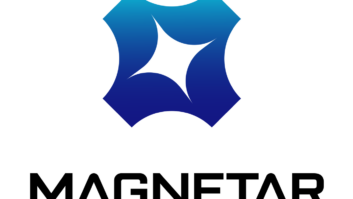NEW YORK –
Manufacturers of Blu-ray Disc hardware
and software have been put on notice by key patent pool
administrator One-Blue that it’s time to pay the piper for
royalties owed on essential patents of the blue-laserbased
HD disc technology.
And, in the current economic climate, with prices dipping
lower and lower, the impact is already proving burdensome
for some.
Just last month, Toronto-based Cinram International,
the manufacturer and distributor of prerecorded media
products, filed for Chapter 15 bankruptcy protection
from U.S. creditors in an effort to reorganize abroad, after
reaching a deal to sell most of its assets to units of
Najafi Cos.
Cinram and eight affiliates produced more than 2.1
billion DVDs, 55 million Blu-ray Discs and 500 million
CDs each year. It listed more than $500 million in debt
and as much as $50 million in assets.
Cinram is but one of a long list of producers of Blu-ray
Disc technology that have been approached by One-
Blue in the last year for royalty payments.
One-Blue was spun off from Philips’ optical disc technologies
licensing organization to establish a patent
pool to simplify and maximize the collection for patent
royalties on most Blu-ray Disc-related technology patents
in the United States, Japan and Canada.
A separate related patent pool entity, called One-Red,
was also established to handle red-laser-based technology
licensing, including DVDs and CDs (the latter are
due to expire soon), as well as the administration of Bluray
licensing for all of the regions outside of the United
States, Japan and Canada.
In addition to arranging and monitoring collections for
royalties on new patents, One-
Red will monitor pre-existing
licensing arrangements, such
as those established under
the former 3C Group.
The One-Blue/One-Red
bodies began the current licensing
program a year ago,
and now handle 15 licensors
and 88 licensed manufactures
from 15 countries.
The 15 licensors include
Cyberlink, Dell, Fujitsu, Hewlett-Packard, Hitachi Consumer
Electronics, JVC Kenwood, Koninklijke Philips
Electronics N.V., LG Electronics, Panasonic, Pioneer,
Samsung Electronics, Sharp, Sony, Taiyo Yuden and
Yamaha.
Licenses are provided for a range of applications
from Blu-ray players, Blu-ray recorders, PCs, PC software,
prerecorded Blu-ray media and recordable media.
Separately, licenses are issued for Blu-ray specific software
extending to companies that produce recording
and playback software for Blu-ray discs, such as Corel,
Adobe or Rovi’s Roxio.
“These patents will be asserted against any one that
is deemed to be making use of the essential patents,”
William Lenihan, One-Blue IP licensing director, told
TWICE. “There is an enormous ecosystem of programs
and products, and the licenses are based on the platform
itself, so you don’t get just one overlapping license.”
Lenihan said the 15 companies came together through
One-Blue primarily because it was able “to slice and
dice the patents in such a way that the IP generated
from certain types of applications gets more favorable
treatment, and therefore the ownership gets remunerated
in a more favorable way.
“We showed that if we put it together, the sum of the
parts is going to be much more favorable for all 15 of
these companies” than handling the patent royalty collections
on their own, Lenihan said.
The One-Blue and One-Red bodies are competing
against another patent pool administrator called the
BD4C Group, comprised of Warner Bros., Toshiba,
Technicolor and Disney.
But where the One-Blue group has 1,073 essential
patents solely for prerecorded discs, the BD4C group
has “probably less than 400,” Lenihan said, “so it’s a
game of who’s got more patents in one region, and we
think we can justify a 9- and three-quarters-cent royalty
rate for prerecorded media versus their active rate.”
Only a few remaining stragglers have not committed
to either the One-Blue or BD4C groups. Among the
more notable parties are Microsoft and Apple, which
both have essential patents that address Blu-ray, Lenihan
said.
From the licensee end, he said that for the most part,
manufacturers have been cooperative in acquiring a
license through the One-Blue or One-Red bodies to
avoid litigation, but this varies
by platform type.
Blu-ray player licensees
have been among the most
cooperative, he said, with
one exception being Toshiba
— the champion of the former
rival HD DVD format and,
along with Warner Bros., an
essential patent holder in the
BD4C patent pool.
“All of the companies
have good expectations, and we would love that there
be one merger, but now that there are so many more
patents in the one group, it’s very unlikely that Toshiba
or Warner will come into this program because they
are getting more money for less patents in the way they
issue as a stand-alone,” Lenihan said. “So hopefully,
the pre-market forces will see that and start pressuring
those companies to lower the royalty rates or merge
with One-Blue.”
He added that collection issues also remain for a number
of private-label Blu-ray Disc player products sold in
the United States.
“We offer [private-label operators] what we
call a brand-owner agreement, so if you are
an importer and want to establish your own
brand, we will offer a license through which
that brand owner can pay the royalties themselves
and get their third-party manufacturer
to co-sign the agreement as a manufacturer
but have the brand owner responsible for paying
the license fees,” he said.
One-Blue will begin the process of patent
enforcement for its 15 licensors in the next six
to 12 months, with legal actions being filed
first in the regions with the heaviest concentrations
of patent positions, Lenihan explained.
One-Blue’s mission is to “make its patents
accessible on reasonable, accessible and
non-discriminatory terms.”
“These patents aren’t going to be in the
hands of a troll,” Lenihan said, adding that
One-Blue will not take the course of Walker
Digital, which “has been suing the world on
certain essential Blu-ray patents against the
same people who are participating.”
“You’d be very, very short-sighted if you
weren’t able to take advantage of these programs.
It doesn’t get any better than this,”
Lenihan said, adding that companies now are
being lobbied to participate, “we are being
very reasonable with them and supportive and
giving them all the tools they need in which to
implement this program.”
“We had an offer on the table last December,
which expired, giving them a substantial
discount if they signed up,” he said. “Predominantly,
most of the Chinese Blu-ray player
manufacturers did.”













